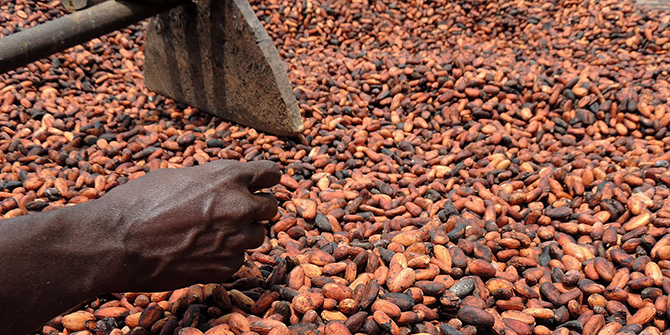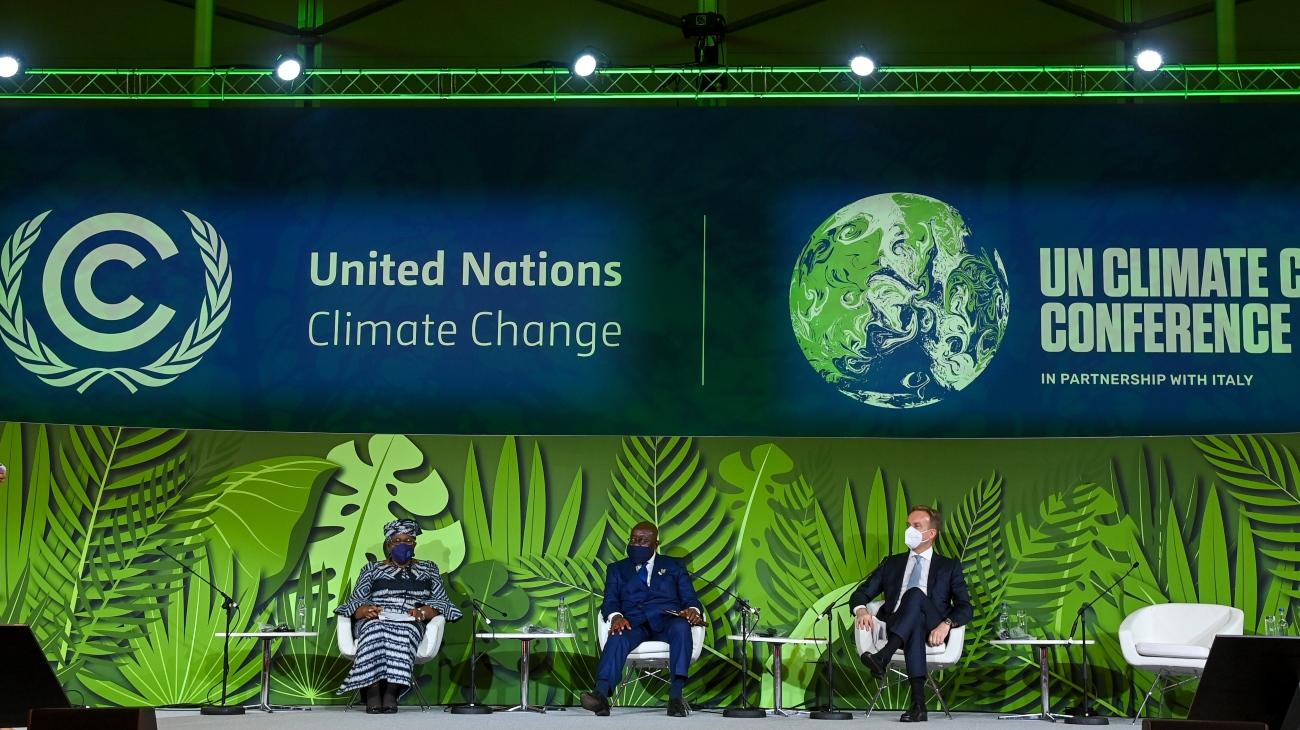The smuggling chain includes wholesalers and state officials embedded in the criminal economy. Dealers of the contraband plastic sometimes bribe the officials through backdoor negotiations to free the arrested wholesalers and release the seized items.
The persistent smuggling of prohibited polythene materials into Cameroon is a worrying trend in the country. After use, the non-biodegradable plastic waste is indiscriminately dumped, which obstructs waterways in major cities. This results in widespread flooding that leads to vector diseases such as malaria and cholera in Cameroon. Plastic waste also blocks the free passage of drainage water and prevents the development or expansion of roots in the soil, contributing to diminishing agricultural production. It has also resulted in the death of cattle, especially in the northern part of Cameroon, where free-grazing livestock have eaten plastic waste strewn over pastures.
Cross-border smuggling of non-biodegradable plastics and the increasing use of this prohibited product are largely responsible for this problem. Due to the increasing demand for polythene bags and the high costs of alternatives, coupled with porous borders and weak enforcement of the law, the smuggling of non-biodegradable plastics into Cameroon continues. The complicity of enforcement officials who are willing to look the other way for bribes has also encouraged the illicit trading of non-biodegradable plastics in the underground market. Smugglers from neighbouring countries, including Nigeria and Gabon, sneak the bags into Cameroon hidden in legal shipments or haul them across the border on footpaths.
According to the Ministry of Environment, Nature Protection and Sustainable Development statistics, non-biodegradable waste represents about 10 per cent of the 6,000,000 tonnes of waste generated daily in Cameroon. A considerable portion of this waste is a by-product of smuggling prohibited polythene materials.
In Cameroon, the manufacturing, possession and commercialisation or free distribution of non-biodegradable plastic packaging with a density of less than or equal to 60 microns in thickness is forbidden, including the granules used for their manufacture.
There are two reasons for specifying this thickness. Firstly, thin plastic bags decay slower than thick ones. They need up to 400 years to decompose completely, posing a threat to landfills. Plastics can take 1,000 years to decompose; even then, they only break down into smaller toxic particles that contaminate the environment.
Secondly, packaging hot foods in thin plastic bags is dangerous for human health, as such plastics emit inedible petroleum substances that cause long-term health problems. Violators face between two and ten years in jail and fines of up to US$20, 000.
Despite the ban, plastic packaging continues to circulate in Cameroonian market. This packaging is made from polyethene, a petroleum by-product with long repeating chains of hydrogen and carbon molecules known as polymers, which can be heated, shaped, and cooled to make plastic bags. The bags are relatively cheap to produce, affordable and can be disposed of easily.
In 2014 and 2015, over 200 people were arrested and detained for 10 days for smuggling plastic contraband into the country, and over 60 tonnes of plastic (worth over US$483,000) were impounded. These operations were carried out by a regional delegation of the environment ministry in collaboration with customs officials and the Ministry of Trade in the southwest region of the country.
In 2019, customs officials seized 8,428 kilogrammes of non-biodegradable plastic bags. In April 2020, 50 tonnes of non-biodegradable plastic packaging concealed in bags of chilli and tea were seized in Mbé, Adamaoua, in the northern region. On 1 September 2020, customs agents seized 800 kilograms of non-biodegradable plastic bags in Maroua, smuggled from Nigeria, under “Operation Halcomi,” which aimed at stopping illicit transborder trades. In September 2021, government officials intercepted and destroyed 42 tonnes of non-biodegradable plastics in Garoua in the north.
While the increasing records of seizures indicate that customs officials are largely aware of their duties of border policing and port surveillance, the measures taken by the government to curb this problem remain largely inadequate. This is closely associated with a lack of political will to fully drive the security, law enforcement and environmental solutions to the criminal economy. Reinforcing border controls and international police cooperation with Nigeria and Gabon as countries of origin for this contraband remains pivotal.
More importantly, ending the smuggling of non-biodegradable plastics into Cameroon requires new medium- and longer-term approaches to environmental governance.
Firstly, the government needs to increase the production of inexpensive and versatile alternatives to conventional, non-biodegradable plastic. They can do this by supporting the development of businesses that focus on eco-friendly innovation and a circular economy, which involves reusing, repairing, refurbishing, and recycling existing materials and products for as long as possible. This calls for a shift in thinking, according to environmentalists.
Secondly, sustained public education should accompany the implementation of the ban on non-biodegradable plastics in the country. Sections 147 and 268 of Law No. 2019/24 on the administration of local authorities in Cameroon state that the objective of the local council shall be to ensure local development and improve the living environment and conditions of its inhabitants, formulating, implementing and monitoring regional environmental action plans or schemes. Therefore, the central government should co-opt and sufficiently resource the urban and rural council authorities to carry out this public awareness campaign with local civil society organisations in partnership with the media.
The combination of these solutions would lower the demand for non-biodegradable plastics and reduce the incentive for smuggling.
Photo: Foumban market, Cameroon. Credit: Jasmine Halki. Licensed under CC BY 2.0





